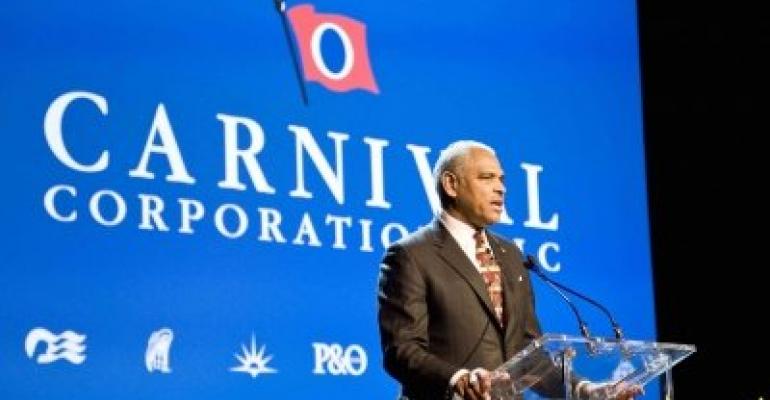The deal with US prosecutors was approved by Judge Patricia Seitz during a hearing Monday in Miami that was attended by Carnival Corp. Chairman Micky Arison, President and CEO Arnold Donald, four additional board members and the company's entire senior leadership team across all its brands.
Seitz had ordered Arison and Donald to appear.
CEO accepts the blame
The deal requires CEO Donald to personally accept responsibility for the violations in a statement to all employees.
During the hearing, Donald said he regretted the mistakes that were made and told the judge 'We are fully committed' to correcting them.
'The judge and the prosecutors were clearly sending a message that the probation and the original underlying violation were serious and the resolution of the probation violation does send that messsage without having third parties such as potential passengers suffer due to Carnival Corporation ships being prohibited from calling at US ports,' said a maritime attorney who has represented clients in other cruise line environmental investigations, in reference to Seitz's earlier threat.
'The judge has made it very clear that there is not a lot of room for further trangressions and presumably Carnival will take this very seriously,' the attorney told Seatrade Cruise News.
Chief compliance officer
In other actions, Carnival is to appoint a chief compliance officer with authority and substantial control to oversee an environmental compliance plan. The officer will report directly to the CEO, with a dotted line to the board's audit and HESS committees. An executive compliance committee comprised of corporate and brand executives will be formed and meet monthly to discuss issues, share and evaluate data and set priorities.
Fines for missed deadlines
If the company misses deadlines for submitting an action plan to restructure its compliance or fails to complete implementation tasks by certain dates, it will be fined up to $1m per day.
Uniform reporting policy
Carnival acknowledged there have been discharges and other releases that violated MARPOL and additional conventions that were not reported to the country where the violations occurred. As a result, the company is to reorganize and enhance policies in its environmental management system concerning the reporting of violations to regulators.
Waste management improvements
Carnival also accepted the need to improve waste management of non-food waste, including plastic, and is going to prioritize this issue by creating 'tiger teams' of experts including third-party consultants dedicated to the project on a full-time basis to ensure implementation across all brands.
The tiger teams intend to meet in Washington, DC, this week for planning workshops, and will be visiting at least 30 ships between June and August to create a benchmark process and procedures, review manning and technical equipment, food waste volume management and single-use items.
Cutting single-use plastics
Carnival agreed to improve training, supervision, staffing and culture related to the disposal of food waste to reduce it by 10% and to cut single-use plastics across the corporate fleet by 50% — both by the end of 2021.
The company is committing at least $20m through the remainder of the probation period to optimize food waste disposal through new technologies and the redesign of systems and processes.
'Today the court approved our agreement with the Department of Justice, setting forth new initiatives, improved procedures, additional training and significant investments to ensure we have the strongest and most sustainable environmental compliance program possible,' Carnival Corp. said in a statement that added its commitment to 'environmental excellence and protecting the environment in which we live, work and travel.'
Carnival Corp. has been on probation for two years after Princess Cruises pleaded guilty to discharging untreated oily bilge water from Caribbean Princess and paying a $40m fine — the largest-ever criminal penalty involving deliberate vessel pollution.
Copyright © 2024. All rights reserved. Seatrade, a trading name of Informa Markets (UK) Limited. Add Seatrade Cruise News to your Google News feed.


